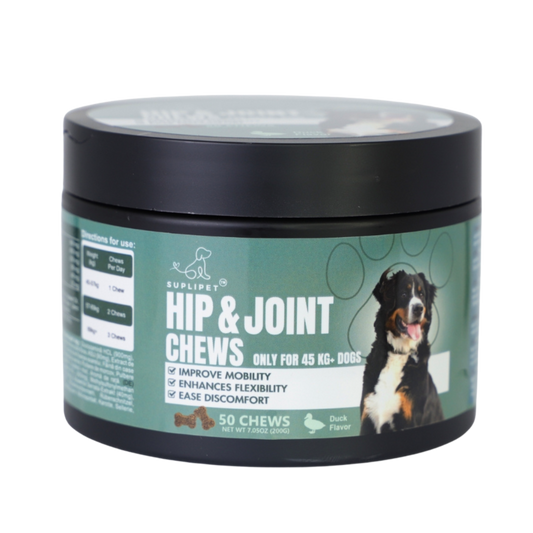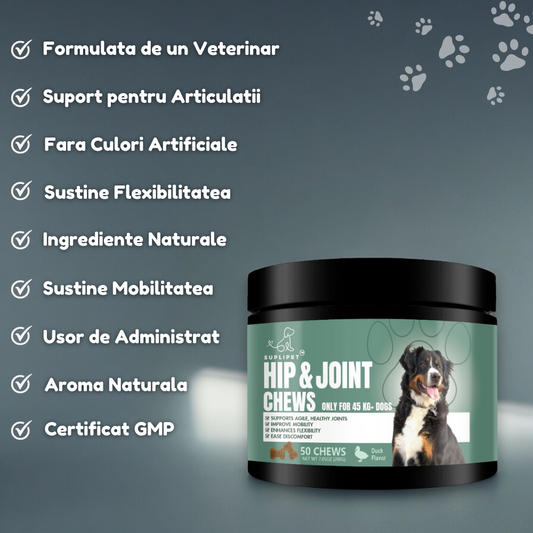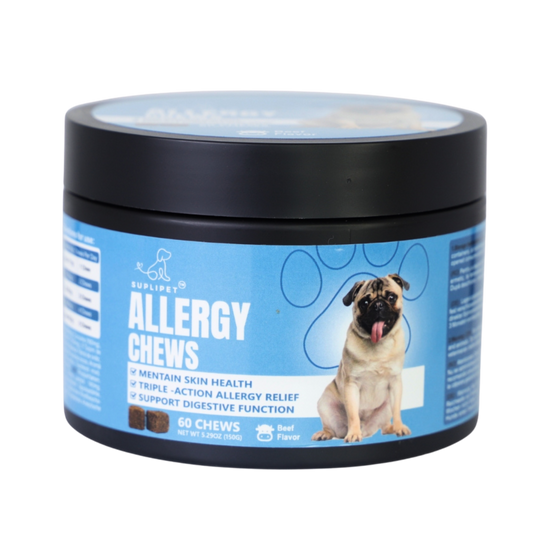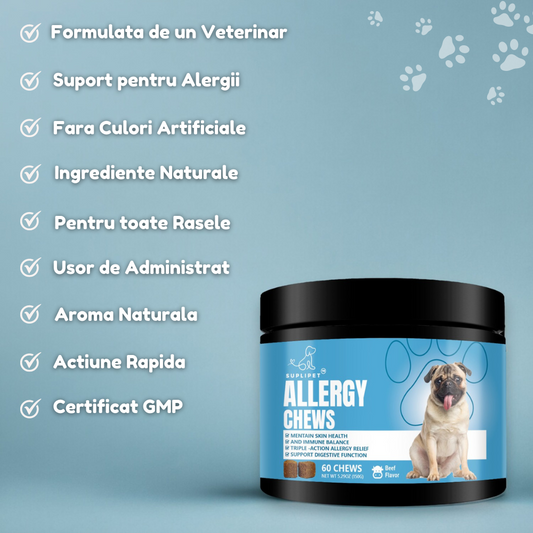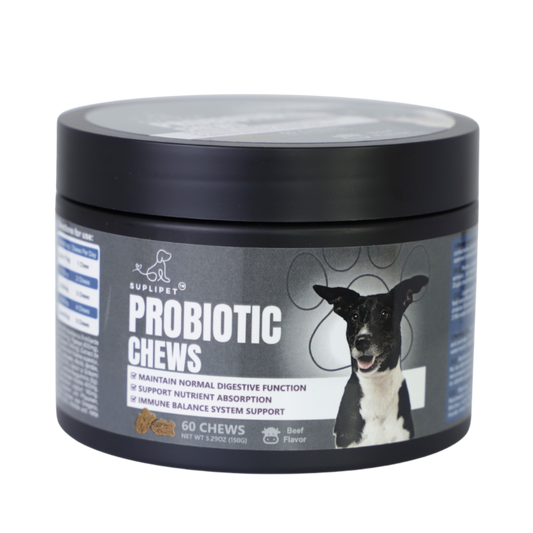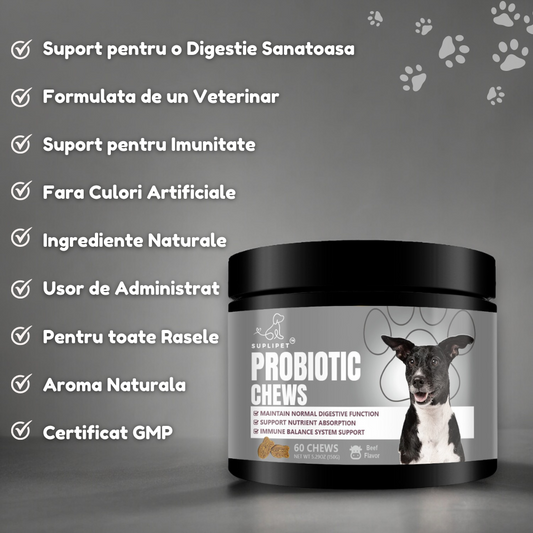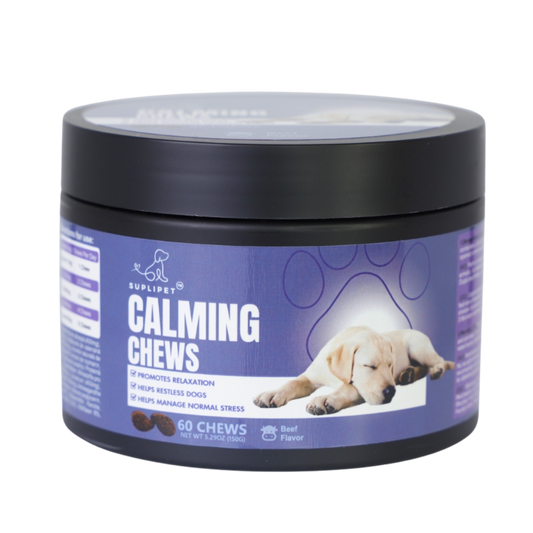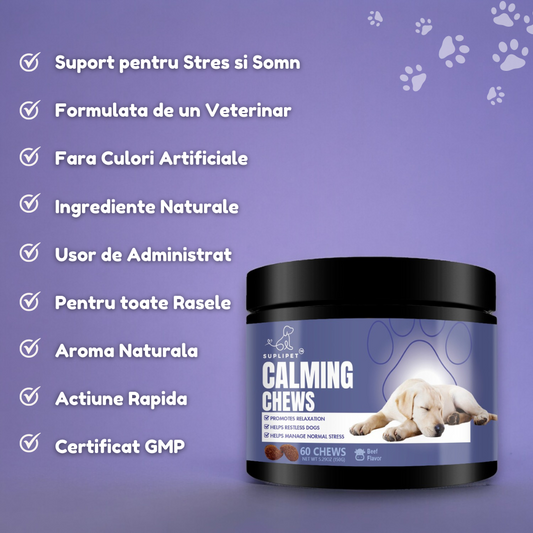Dogs have been human companions for millennia, dazzling us with their devotion, affection, and fascinating habits. Their distinct characteristics and habits not only fascinate us but also provide insight into their intricate environment. In this in-depth investigation, we'll look at the science behind canine vision, decipher the reasons for some of their unusual activities, like as grass-eating, unravel the mysteries of their dreams, and emphasize the necessity of dietary supplements for their overall health.

The Science of Dog Vision
A frequently asked question among dog owners is "What colors can dogs see?" Contrary to popular opinion, dogs can detect colors, albeit in different ways than humans. Humans have three types of cone cells in their retinas, which allow them to see a variety of colors. Dogs, on the other hand, have only two types of cone cells, limiting their color sensitivity to blues and yellows. This implies that colors like red and green appear to them as shades of gray, similar to how an individual with red-green color blindness sees these colors.
Understanding how dogs perceive the world can dramatically improve our interactions with them. For example, choosing toys in blue or yellow can be more stimulating for them because these colors stand out more clearly in their vision than red or green, which may appear boring or grayish. By choosing toys and accessories in colors that dogs can easily discern, owners may make playtime more interesting and joyful for their pets.
Furthermore, the anatomy of a dog's eyes gives them a better capacity to see in low-light circumstances. This is because their retinas contain a greater amount of rod cells, making them more sensitive to light and movement. This characteristic most likely evolved to help wild dogs hunt at dawn and twilight when light is sparse. As a result, dogs have stronger night vision than humans, helping them to navigate and detect activity in the dark more effectively.
Why Do Dogs Eat Grass?
One of the most perplexing activities noticed by dogs is grass-eating. Many dog owners have observed their pups chomping on grass and wondered about the motives behind this seemingly strange behavior. There are various hypotheses as to why dogs participate in this activity, and it is critical to note that it is typically regarded as ordinary and not necessarily indicative of sickness.
According to one popular notion, dogs chew grass to cause vomiting when they have an upset stomach. However, studies have found that less than 25% of dogs vomit after eating grass, showing that this is not the primary cause of this behavior. Another hypothesis holds that dogs eat grass intuitively to ease digestion or to meet a dietary requirement, such as a fiber shortage. Grass can give roughage that aids digestion, especially in dogs whose diets lack sufficient fiber.
Grass-eating may also be a behavioral issue caused by boredom, anxiety, or simply enjoying the flavor and texture. If your dog's behavior is caused by boredom or anxiety, providing him with regular play, exercise, and interactive toys can help alleviate it. Providing a well-balanced feed that covers all of their nutritional requirements can also reduce the likelihood of them eating grass to fill a dietary deficit.
Interestingly, wild canines such as wolves and foxes eat grass and other flora. This implies that grass-eating is a natural activity that has been perpetuated through domestication. While it is typically healthy for dogs to eat grass, it is critical that the grass they have access to be free of pesticides, herbicides, and other hazardous substances that may pose health hazards.
The Mystery of Dog Dreams.
Have you ever noticed your dog quiver, whimper, or paddle their paws while sleeping and wondered what they were dreaming about? Dogs, like humans, go through various stages of sleep, including REM (Rapid Eye Movement), which is when dreams occur. During REM sleep, the brain is extremely active, and it is thought that dogs, like people, dream during this time.
According to research, dogs may have dreams concerning their daily activity. For example, a dog may have dreams about playing fetch, chasing squirrels, or spending time with their owner. Observing your dog while sleeping can provide insight into their dreams. If their paws move quickly or they make brief vocalizations, they may be dreaming of running or indulging in other active actions.
Understanding dog dreams helps strengthen your bond with your pet. Recognizing that kids, like us, have dreams might help them develop a better understanding of their internal world. Providing a comfortable and safe sleeping environment can improve sleep quality, resulting in healthier and happier pets. Providing them with a comfortable bed, a calm environment, and a consistent sleep regimen might help them get more rest and feel better overall.

Supplements for Healthy Dogs
Dietary supplements can help keep our pets healthy and bright by covering nutritional gaps and promoting overall wellness. While a well-balanced diet is essential, supplements can give additional benefits to help maintain maximum health. Here are some important vitamins that can help your dog's well-being:
Omega 3 Fatty Acids
Omega-3 fatty acids are important lipids that provide several health benefits to dogs. These fats promote a lustrous coat and healthy skin, reduce inflammation, and enhance joint health. Fish oil is a usual supply of omega-3s for dogs and can be supplemented into their diet to improve these elements of their health. Regular omega-3 fatty acid supplementation can also help with cognitive function, which is especially good for older dogs.
Probiotics
Probiotics are beneficial microorganisms that improve gut health, boost the immune system and aid digestion. They are especially beneficial for dogs with sensitive stomachs or those who have taken antibiotics, which can alter the normal balance of gut bacteria. Probiotics can help prevent stomach disorders, improve nutrient absorption, and support overall immune function by promoting gut health.
Glucosamine and chondroitin.
These supplements are critical for preserving joint health, especially in elderly dogs or breeds predisposed to joint problems. Glucosamine and chondroitin reduce inflammation, support cartilage repair, and keep joints lubricated, which can enhance mobility and alleviate the discomfort associated with arthritis and other joint diseases. Regular supplements can help your dog remain active and comfortable as they age.
Multivitamins provide a full range of vitamins and minerals, ensuring balanced nutrition, especially for dogs on homemade diets that may lack specific components. Multivitamins can help your dog's general health, increase energy levels, and ensure that they obtain all of the nutrients they require for optimal well-being.
Other Beneficial Supplements
In addition to the essential vitamins described above, there are various supplements that can aid dogs depending on their individual requirements. Antioxidants, such as vitamins C and E, can help to boost the immune system and protect against cellular damage. Biotin and zinc supplements can help with skin and coat health, while turmeric and green-lipped mussel provide further anti-inflammatory benefits.
We recommend you use supplements from www.suplipet.shop
Strengthening the Bond with Your Dog
Understanding and appreciating dogs' distinctive characteristics and behaviors can dramatically improve your bond with your pet. You may provide a more enriching and encouraging environment for them by learning about how they perceive the world, why they participate in particular activities, and how they sleep.
Engage with Your Dog
Interacting with your dog in ways that are tailored to their specific sensory experiences can make a significant difference. For example, selecting toys and accessories with colors they can see clearly, such as blue and yellow, might make playing more fun. Activities that stimulate their natural inclinations, such as puzzle toys or scent-based games, can help keep them mentally and physically active.
Addressing Behavior Issues
Understanding the underlying causes of habits such as grass-eating might help you address possible difficulties more effectively. If your dog consumes grass out of boredom or worry, providing mental and physical stimulation through exercise, play, and interactive toys can help to minimize this behavior. Providing them with well-balanced food that satisfies all of their nutritional requirements can also help to reduce the likelihood of them eating grass owing to dietary deficits.
Providing Comfort and Security
Recognizing dogs' dreams and providing them with a comfortable and safe resting environment will help them feel better overall. Ensuring they have a comfortable bed, a peaceful environment, and a consistent sleep schedule will help them sleep better. Observing their sleep patterns and realizing that they may be dreaming about their daily activities might strengthen your bond with them.
Supplements for Better Health
Incorporating dietary supplements into your dog's regimen can help them maintain their overall health and wellness. Omega-3 fatty acids, probiotics, glucosamine, and multivitamins can all provide specific benefits to improve various elements of their health. Before introducing new supplements, consult with your veterinarian to verify that your dog receives the proper nutrients in appropriate amounts for their unique needs.

Conclusion
Dogs are more than simply pets; they are devoted friends who enhance our lives with their distinct characteristics and actions. Understanding the science underlying their vision, decoding their complex behaviors, appreciating their dream world, and maintaining their health with the right nutrition and supplements will help us ensure a happy and healthy life for our furry friends. A well-informed owner is the best companion a dog can have, and by constantly learning and engaging, we can improve the link we share with our beloved dogs.
-
Regular price98,00 leiRegular price
122,00 leiSale price98,00 lei Save 24,00 lei (19%)Unit priceperHip & Joint Chews 45kg+ Dogs
-
Regular price119,00 leiRegular priceSale price119,00 lei Save -119,00 lei (%)Unit priceper
Allergy Chews Dogs
-
Regular price92,00 leiRegular price
119,00 leiSale price92,00 lei Save 27,00 lei (22%)Unit priceperProbiotic Chews Dogs
-
Regular price88,00 leiRegular price
109,00 leiSale price88,00 lei Save 21,00 lei (19%)Unit priceperCalming Chews Dogs


